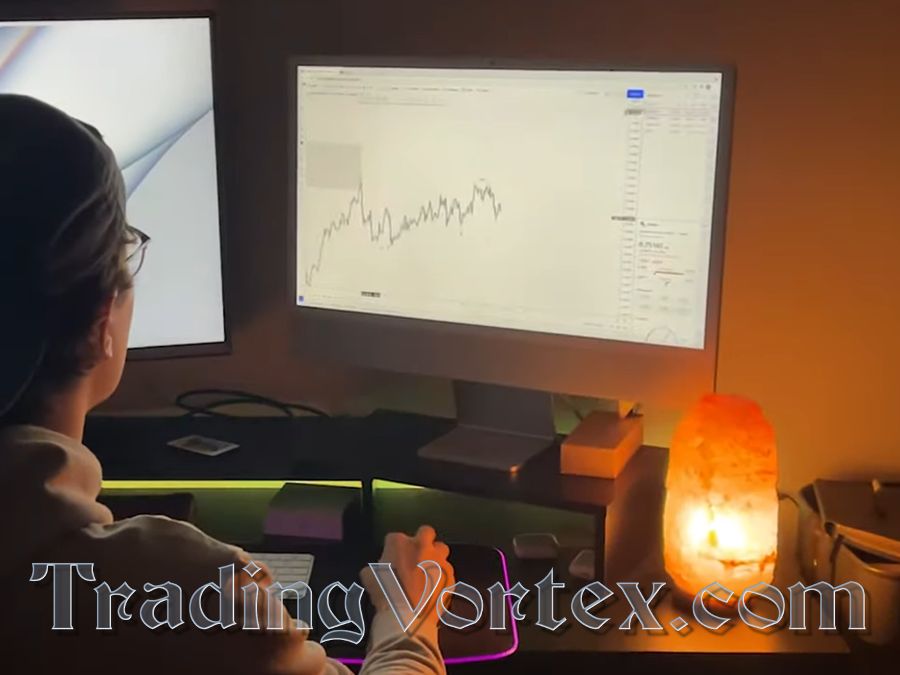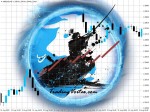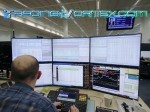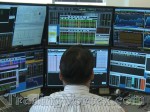Table Of Contents:
- Introduction to Night Trading in Forex:
Criteria for Selecting Currency Pairs for Night Trading:
Best Currency Pairs for Night Trading: A Comprehensive Analysis.
Tips for Successful Night Trading in Currency Pairs:
Common Pitfalls in Night Trading: How to Avoid Them?
Adapting to Global Economic Events and News During Night Trading:
Case Studies and Examples of Successful Night Trading Strategies:
Advanced Techniques and Tools for Optimizing Night Trading Performance:
The Future of Night Trading in Forex: Trends and Projections.
Conclusion: Mastering the Art of Currency Trading at Night.
Introduction to Night Trading in Forex:
In the realm of foreign exchange (Forex) trading, the global market never sleeps. As the sun sets in one part of the world, it rises in another, and with it, opportunities for trading currencies arise. This article is your guide to navigating the intricacies of night trading in Forex, focusing on 'Best Currency Pairs to Trade at Night: Tips and Pitfalls.'
Understanding the Significance of Night Trading:
One of the key reasons for the significance of night trading lies in the market's 24-hour accessibility. Unlike traditional stock markets, the Forex market operates continuously, Monday through Friday. This means that even during the nighttime hours, currency pairs can be actively traded. This accessibility offers several advantages to traders.
Benefits of Night Trading in Forex:
- Global Opportunities: Night trading allows traders to tap into global markets that would otherwise be closed during their local daytime. It opens doors to different currency pairs and exchanges worldwide, enhancing diversification and potential profit opportunities.
- Reduced Competition: The nighttime trading hours often witness reduced trading activity compared to peak daytime hours. With fewer participants, traders can enjoy potentially reduced spreads and increased chances of executing orders at desired prices.
- Increased Volatility: Certain currency pairs exhibit increased volatility during night trading, providing opportunities for quick and substantial price movements. This can be advantageous for traders seeking short-term profits.
- Convenience: For traders with busy daytime schedules, night trading can offer the convenience of participating in the market during off-peak hours. This flexibility allows for a better work-life balance while still engaging in trading activities.
Challenges of Night Trading in Forex:
However, night trading in Forex comes with its own set of challenges and considerations that traders must be aware of:
- Liquidity Concerns: The nighttime hours can experience lower liquidity, especially during the overlap of Asian and European trading sessions. This can lead to wider spreads and potential slippage in trade execution.
- Psychological Strain: Trading at night may disrupt sleep patterns and lead to fatigue, affecting decision-making and overall trading performance. Traders must manage these challenges to stay alert and focused.
- Market News and Events: While the Forex market is open 24/5, major economic news and events often occur during daytime hours. Night traders may need to adapt to trading around these releases, which can impact currency values.
In the following sections of this article, we will delve deeper into the criteria for selecting the best currency pairs for night trading and provide practical tips and strategies for successful nighttime trading, while also addressing the common pitfalls to avoid.
Understanding the unique dynamics of night trading in Forex will empower traders to make informed decisions and optimize their trading activities during these unconventional hours.
Criteria for Selecting Currency Pairs for Night Trading:
Successful night trading in Forex hinges on a strategic selection of currency pairs that align with your trading goals and the unique dynamics of nighttime trading. In this section, we explore the essential criteria for choosing the best currency pairs for night trading.
Market Liquidity and Volatility Analysis:
Market Liquidity:
Liquidity is a vital factor when selecting currency pairs for night trading. During the night, market liquidity can vary significantly, impacting trade execution and transaction costs. Here's how to assess liquidity:
- Majors vs. Exotics: Major currency pairs (e.g., EUR/USD, USD/JPY) often maintain higher liquidity levels, even during nighttime hours. Traders tend to prefer these pairs due to narrower spreads and more predictable price movements. Exotic currency pairs (e.g., USD/TRY, EUR/TRY) may experience reduced liquidity, leading to wider spreads.
- Overlap Periods: The hours when two major trading sessions overlap, such as the Asian-European overlap, typically provide higher liquidity. Traders often find favorable conditions during these periods for night trading.
- Economic Calendar: Check economic calendars for scheduled economic news releases that could impact liquidity and price movements during night trading hours.
Volatility Analysis:
Volatility can present both opportunities and risks in night trading. Higher volatility can lead to significant price swings, offering traders the potential for profit, but it also increases risk. Here's how to assess volatility:
- Historical Volatility: Examine historical price movements for specific currency pairs during night hours to gauge their typical volatility. Some pairs may exhibit stable, slow-moving patterns, while others may be more erratic.
- News Events: Consider how news events and economic data releases might affect currency pair volatility during nighttime hours. Major announcements can trigger unexpected market movements.
Time Zone Considerations for Global Markets:
Currency markets are inherently tied to global time zones, and understanding these time zone overlaps is crucial for night trading. Here are key considerations:
- Asian Session: The Asian trading session, which includes markets in Tokyo and Sydney, often kicks off night trading. Currency pairs involving the Japanese Yen (JPY) and the Australian Dollar (AUD) may exhibit more significant movements during this time.
- European Session: The European session, centered around London, typically overlaps with Asian trading, providing another window of opportunity for night traders. Pairs like EUR/USD are active during this period.
- U.S. Session: While the U.S. session largely occurs during the daytime in North America, traders in other time zones may find nighttime opportunities to trade USD-related pairs when economic data is released.
- Cross-Currency Pairs: Cross-currency pairs, which exclude the U.S. Dollar, can offer diversification options for night trading. These pairs may see more activity during the European and Asian sessions.
Understanding the correlation between currency pairs and their corresponding market sessions can help traders make informed decisions about when and what to trade at night.
With these criteria in mind, traders can make strategic selections that align with their trading goals, risk tolerance, and time availability, ensuring a well-informed approach to night trading in the Forex market.
Best Currency Pairs for Night Trading: A Comprehensive Analysis.
When it comes to night trading in the Forex market, the choice of currency pairs plays a pivotal role in the success of your trading endeavors. In this section, we perform a comprehensive analysis of currency pairs suitable for night trading, categorizing them into two main groups: major currency pairs and exotic currency pairs.
Major Currency Pairs: Analyzing Performance During Night Hours.
Major currency pairs are those that include the U.S. Dollar (USD) and another major global currency, such as the Euro (EUR), Japanese Yen (JPY), or British Pound (GBP). Here's how these pairs tend to perform during night hours:
- EUR/USD: The EUR/USD pair is among the most actively traded currency pairs globally. During the night, it maintains decent liquidity and can present opportunities for night traders due to the overlap with the European session.
- USD/JPY: USD/JPY is popular among night traders, especially during the Asian trading session. The Japanese Yen is actively traded during these hours, making this pair more volatile and potentially rewarding.
- GBP/USD: Traders who prefer the night hours might find GBP/USD appealing. While it experiences reduced liquidity compared to daytime, it remains an attractive choice for night trading.
- AUD/USD: The Australian Dollar (AUD) is active during the Asian session, creating potential opportunities for those trading at night. AUD/USD can exhibit notable price movements during these hours.
- USD/CHF: USD/CHF often demonstrates stable trading conditions at night. Traders looking for a more predictable environment might consider this pair.
Exotic Currency Pairs: Exploring Opportunities and Risks at Night.
Exotic currency pairs involve one major currency and one from a smaller or emerging market. They are known for their higher spreads and lower liquidity, which can create both opportunities and risks in night trading. Here's an exploration of some exotic pairs:
- USD/TRY (U.S. Dollar/Turkish Lira): Exotic pairs like USD/TRY can exhibit high volatility and substantial price movements during the night, making them attractive to risk-tolerant traders.
- EUR/TRY (Euro/Turkish Lira): Similar to USD/TRY, EUR/TRY is known for its volatility, especially during the night hours, offering the potential for significant profits.
- USD/SGD (U.S. Dollar/Singapore Dollar): USD/SGD is a popular exotic pair for night trading. The Singapore Dollar is active during the Asian session, creating trading opportunities.
- EUR/SGD (Euro/Singapore Dollar): EUR/SGD offers exposure to the Euro and the Singapore Dollar, with the potential for price swings during night hours.
- GBP/ZAR (British Pound/South African Rand): Traders interested in the South African Rand might consider GBP/ZAR for night trading. It can exhibit pronounced movements during the night.
- EUR/TRY (Euro/Turkish Lira): Similar to USD/TRY, EUR/TRY is known for its volatility, especially during the night hours, offering the potential for significant profits.
While exotic pairs can provide intriguing opportunities for night traders due to their volatility, it's essential to approach them with caution, as they can be associated with higher spreads and increased risk. Major currency pairs offer a more stable choice for those who prefer a more predictable trading environment.
By understanding the nuances of these currency pairs, night traders can make informed decisions that align with their trading strategies and risk tolerance, ensuring a well-rounded approach to Forex night trading.
Tips for Successful Night Trading in Currency Pairs:
Trading currencies at night comes with its own set of considerations and strategies to enhance success. In this section, we offer tips tailored to night trading in currency pairs, emphasizing the importance of technical analysis tools and effective risk management.
Utilizing Technical Analysis Tools for Night Trading:
- Candlestick Patterns: Leverage candlestick patterns, like dojis, hammers, and engulfing patterns, to identify potential trend reversals and entry points during night trading. These patterns can offer insights into market sentiment.
- Moving Averages: Implement moving averages, such as the simple moving average (SMA) or exponential moving average (EMA), to smoothen price data and identify trends. Crossovers between short and long-term moving averages can signal entry or exit points.
- Bollinger Bands: Bollinger Bands help assess volatility and price movements. Traders can use these bands to identify overbought or oversold conditions and anticipate price reversals.
- Relative Strength Index (RSI): RSI is a momentum oscillator that can help traders assess the strength of a trend and potential reversal points. It can be especially valuable during night trading when volatility may vary.
- Support and Resistance Levels: Identify key support and resistance levels through technical analysis. These levels can act as significant price turning points, providing guidance for setting stop-loss and take-profit orders.
- Fibonacci Retracement Levels: Fibonacci retracement levels can help identify potential retracement levels and determine entry points. These levels are particularly useful for assessing pullbacks during night trading.
Implementing Effective Risk Management Strategies:
- Position Sizing: Determine the appropriate position size based on your risk tolerance and account size. Avoid overleveraging, as night trading can be more unpredictable due to lower liquidity.
- Stop-Loss and Take-Profit Orders: Always set stop-loss and take-profit orders to manage risk. These orders ensure that you have predefined exit points, protecting your capital from significant losses and locking in profits.
- Diversification: Diversify your portfolio by trading multiple currency pairs. This can spread risk and reduce the impact of potential losses on a single trade.
- Monitor Economic Calendars: Stay informed about economic news and events that can affect the currency pairs you are trading. Avoid trading during high-impact news releases when volatility and unpredictability can surge.
- Stay Informed and Adaptive: Keep abreast of changes in market conditions, and be prepared to adapt your trading strategy as needed. Night trading often requires flexibility in response to shifting market dynamics.
- Trade with a Clear Strategy: Develop a well-defined trading strategy with entry and exit criteria. Avoid impulsive decisions, and stick to your plan, especially during night trading when emotions can play a more significant role.
Successful night trading in currency pairs is achievable with a combination of technical analysis tools and robust risk management strategies. By adhering to these tips, traders can navigate the complexities of night trading with a structured and informed approach, increasing their chances of profitable outcomes.
Common Pitfalls in Night Trading: How to Avoid Them?
Night trading in the Forex market offers unique opportunities, but it also presents challenges that traders must be vigilant about. In this section, we discuss some of the common pitfalls associated with night trading and provide strategies for overcoming them.
Overcoming Liquidity Challenges in Night Trading:
- Wider Spreads: Due to reduced trading activity during the night, currency pair spreads may widen. To counteract this, consider trading major currency pairs that typically maintain narrower spreads even in off-peak hours.
- Slippage: Lower liquidity can result in slippage, where your order is executed at a different price than expected. To mitigate slippage, use limit orders and be cautious when trading exotic pairs, which are more susceptible to this issue.
- Less Predictable Market Movements: Night trading can be characterized by less predictable market movements, often influenced by unexpected events. Stay informed about global economic news and adapt your strategies accordingly.
- Avoiding Market Opens and Closes: The opening and closing hours of Forex markets are times of higher volatility but can also come with greater unpredictability. Some traders avoid night trading during these times to reduce risk.
Managing Psychological Pressures During Night Trading:
- Maintain Discipline: Stick to your trading plan and strategy. Emotions can have a more significant impact on night traders, so maintaining discipline is crucial to avoid impulsive decisions.
- Set Realistic Expectations: Understand that night trading can be different from daytime trading in terms of volatility and liquidity. Set realistic expectations and avoid overtrading.
- Use Risk Management: Effective risk management is essential to control losses and maintain a clear mindset. Set stop-loss orders and adhere to them, and never risk more than you can afford to lose.
- Regular Breaks and Rest: Night trading can disrupt sleep patterns and lead to fatigue. Ensure you take regular breaks, stay well-rested, and maintain a healthy work-life balance to prevent burnout.
- Demo Trading: If you're new to night trading or testing a new strategy, consider using a demo account before committing real capital. This allows you to practice without risking actual funds.
- Keep a Trading Journal: Maintaining a trading journal can help you track your decisions and learn from both successful and unsuccessful trades. It also provides a valuable record of your night trading experiences.
By addressing these common pitfalls and implementing strategies to overcome them, night traders can navigate the challenges unique to nighttime Forex trading. Success in night trading requires vigilance, discipline, and the ability to adapt to the distinct dynamics of the market during these hours.
Adapting to Global Economic Events and News During Night Trading:
Night trading in the Forex market offers unique opportunities, but it also requires a keen understanding of the impact of global economic events and news releases. In this section, we explore how these factors can affect night trading and how traders can incorporate economic event analysis into their strategies.
Understanding the Impact of Global News on Night Trading:
- Volatility Spike: Major economic news releases can trigger a sudden and substantial increase in market volatility. This heightened volatility can present both opportunities and risks for night traders.
- Market Sentiment Shifts: Economic news can significantly influence market sentiment. Positive news, such as strong economic data, can lead to bullish sentiment, while negative news can create a bearish sentiment. Understanding these shifts is crucial for making informed trading decisions.
- Currency-Specific Impact: Different economic events can affect specific currency pairs differently. For example, a positive employment report in the United States can strengthen the U.S. Dollar (USD) against other currencies.
- Timing of News Releases: Economic news releases are scheduled events, and their timing can vary based on the country and region. Traders need to be aware of when key news releases are expected, especially if they occur during night trading hours.
Incorporating Economic Event Analysis into Night Trading Strategies:
- Use Economic Calendars: Stay informed about upcoming economic events by using economic calendars. These calendars provide schedules of important releases and their expected impact on the markets.
- Plan Ahead: Before entering a night trade, check economic calendars for any scheduled news releases during your trading session. Avoid entering positions just before or during high-impact news events to minimize the potential for extreme volatility and slippage.
- Adjust Position Sizes: Consider reducing position sizes or even closing out positions ahead of major news releases, especially if you are uncertain about the potential market impact.
- Be Ready to React: If you plan to trade through important economic events, have a strategy in place for rapid response. Setting tight stop-loss orders and take-profit levels can help you manage risk during news-driven price swings.
- Monitor Market Reaction: After the release of economic news, closely monitor how the market reacts. This can provide insights into the sentiment and direction of the currency pair you are trading.
- Stay Informed About Global Events: Economic events are not isolated incidents. They can be influenced by broader global developments. Staying informed about international affairs and geopolitical events can help traders anticipate market movements during night trading.
Adapting to global economic events and news during night trading is essential for making informed and strategic decisions. Traders who are well-versed in economic event analysis can use this knowledge to their advantage, whether by avoiding high-impact releases or capitalizing on news-driven price movements.
Case Studies and Examples of Successful Night Trading Strategies:
In the world of night trading, practical insights often come from real-life experiences and examples of successful strategies. In this section, we delve into case studies that illustrate profitable night trading scenarios, offering valuable lessons for traders looking to succeed during the night hours.
Analyzing Real-Life Examples of Profitable Night Trading:
Case Study 1: EUR/USD Breakout.
In this case, a night trader identified a consistent pattern of EUR/USD experiencing price consolidation during the late Asian trading hours. Recognizing this, the trader employed a breakout strategy. They placed pending buy and sell orders just outside the consolidation range. When the London session commenced with increased volatility, one of the pending orders was triggered. The trade was managed with a tight stop-loss and a trailing stop, ultimately resulting in a profitable outcome as the pair trended upward during the European session.
Case Study 2: USD/JPY Carry Trade.
A trader with a longer-term perspective used a carry trade strategy involving USD/JPY. They borrowed funds in a currency with low-interest rates (Japanese Yen) and invested in a currency with higher interest rates (U.S. Dollar). This was executed during the night hours, capitalizing on interest rate differentials while taking advantage of the lower volatility typically seen at night. Over several weeks, the trader benefited from the interest rate spread and exchange rate movements, resulting in a positive return on the trade.
Learning from Mistakes: Case Studies on Failed Night Trading Attempts.
Case Study 1: Overleveraging in Exotic Pairs.
A trader sought to capitalize on the high volatility of exotic pairs during the night. In one instance, they entered a position in an exotic currency pair without proper risk management. The combination of high leverage and low liquidity led to significant losses when the trade moved against them. This case emphasizes the importance of managing leverage and risk when trading volatile currency pairs at night.
Case Study 2: Ignoring Economic Calendar Events.
In another example, a trader ignored the economic calendar and entered a position in a major currency pair during the night without realizing that a high-impact economic news release was scheduled. The unexpected news event caused extreme volatility and slippage, resulting in a substantial loss for the trader. This case underscores the significance of staying informed about economic events during night trading.
These case studies demonstrate the diverse strategies and scenarios that night traders encounter. While successful night trading can yield profits, it also carries inherent risks that require prudent risk management and a deep understanding of market conditions. By learning from both the successes and failures of these case studies, traders can refine their strategies and enhance their night trading skills.
Advanced Techniques and Tools for Optimizing Night Trading Performance:
As the Forex market evolves, traders are increasingly turning to advanced techniques and tools to enhance their night trading performance. In this section, we explore two cutting-edge approaches: automated trading systems and the use of artificial intelligence (AI) in night trading.
Automated Trading Systems: Pros and Cons for Night Trading.
Pros:
- 24/5 Trading: Automated trading systems operate around the clock, making them suitable for night trading. These systems can execute trades without requiring manual intervention, ensuring that opportunities are not missed during the night.
- Eliminating Emotions: Automation removes the emotional element from trading, which is especially valuable during night trading when fatigue and emotions can cloud judgment. Automated systems strictly follow predefined rules and execute trades based on objective criteria.
- Backtesting and Optimization: Traders can backtest automated trading strategies to assess their historical performance. This enables refinement and optimization of strategies for night trading.
Cons:
- Risk of Over-Optimization: Excessive optimization can lead to a system that works well in historical data but performs poorly in real-time conditions. Traders should strike a balance between optimization and robustness.
- Monitoring and Maintenance: While automated systems can operate independently, they still require monitoring and maintenance. Markets can change, and adjustments may be necessary to keep the system effective.
- Costs: Developing or acquiring an automated trading system can be costly, both in terms of initial development and ongoing maintenance.
Using Artificial Intelligence in Night Trading: A Comparative Analysis.
Artificial Intelligence in Trading:
- Pattern Recognition: AI can analyze vast amounts of historical data to identify complex patterns and trends that may not be apparent through traditional analysis. This can be particularly advantageous in night trading.
- Risk Management: AI can continuously assess risk and make real-time adjustments to trading positions, helping to protect capital during night trading when market conditions can change rapidly.
- Predictive Analytics: AI can be used to predict market movements based on historical data and external factors. These predictions can inform trading decisions during the night hours.
Comparative Analysis:
- Human vs. AI: While AI offers advanced analysis capabilities, it is not infallible. Human traders bring intuition, adaptability, and subjective judgment to the table, which can be challenging for AI to replicate.
- Complementing Human Traders: Many traders find success by integrating AI as a tool to support their decision-making rather than relying solely on AI-driven trading. This combination can leverage the strengths of both humans and AI.
- Data Dependence: AI is highly reliant on data quality and quantity. In scenarios with limited historical data, AI may be less effective.
- Risk Management: AI can provide advanced risk management capabilities, but human oversight remains crucial to ensure the AI system is acting in the trader's best interests.
Night trading with advanced techniques and tools, such as automated systems and AI, presents exciting opportunities for traders. However, these tools should be used judiciously and in conjunction with a strong understanding of the market to optimize night trading performance while mitigating potential risks.
The Future of Night Trading in Forex: Trends and Projections.
As night trading in the Forex market continues to evolve, it's crucial to look ahead at emerging trends and projections that could shape the future of this niche. In this section, we delve into the potential future developments in night trading.
Emerging Technologies Shaping the Night Trading Landscape:
- Algorithmic Trading: Algorithmic trading, which includes high-frequency trading (HFT) and machine learning-driven strategies, is likely to play a more prominent role in night trading. These technologies can make rapid, data-driven decisions and capitalize on market inefficiencies.
- Blockchain and Cryptocurrency: As cryptocurrencies gain acceptance in the financial world, trading pairs involving cryptocurrencies, like Bitcoin and Ethereum, may become more active during the night. Blockchain technology may also enhance the security and transparency of night trading.
- Mobile Trading Apps: The convenience of mobile trading apps is expected to further enhance night trading accessibility. Traders can access the market on their smartphones or tablets, providing greater flexibility and opportunities for trading during the night.
- AI and Predictive Analytics: Artificial intelligence and predictive analytics are likely to play a more significant role in night trading. These technologies can provide real-time insights, predictive indicators, and improved risk management, making night trading more efficient and informed.
Regulatory Challenges and Opportunities in Night Trading:
- Increased Oversight: Regulatory bodies are likely to focus more on night trading activities to ensure fair and transparent market operations. Traders should expect increased scrutiny and regulation, which may impact certain trading strategies.
- Market Access: Regulatory changes may enhance market access during the night for retail traders. This could lead to increased participation and liquidity during these hours.
- Cryptocurrency Regulation: As cryptocurrencies become more integrated into night trading, regulatory bodies are expected to create a framework for the oversight of cryptocurrency trading activities, which may impact the night trading landscape.
- Data Privacy: Data privacy and cybersecurity regulations will become even more critical as night trading activities increasingly rely on digital platforms. Traders and brokers will need to adhere to stringent data protection measures.
- Market Surveillance: Regulators may implement more sophisticated surveillance tools to monitor trading activities during the night. These tools will help detect and prevent market manipulation and fraud.
The future of night trading in Forex promises to be dynamic, driven by technological advancements and evolving regulatory landscapes. Traders who adapt to these changes and stay informed about emerging trends will be well-positioned to capitalize on the evolving opportunities presented by night trading.
Conclusion: Mastering the Art of Currency Trading at Night.
Night trading in the Forex market is a distinct and captivating niche that offers a world of opportunities and challenges. Throughout this article, we've explored the intricacies of night trading, from understanding the best currency pairs to trade at night to delving into the tips, pitfalls, and advanced techniques that can optimize your night trading performance.
Summarizing Key Strategies for Successful Night Trading:
Successful night trading requires a well-rounded approach that combines the following key strategies:
- Currency Pair Selection: Carefully select currency pairs based on liquidity, volatility, and time zone considerations. Major pairs offer stability, while exotic pairs provide opportunities for high returns.
- Risk Management: Implement effective risk management strategies, including position sizing, stop-loss and take-profit orders, and diversification, to protect your capital.
- Technical Analysis Tools: Utilize technical analysis tools like candlestick patterns, moving averages, and support and resistance levels to make informed trading decisions during night hours.
- Economic Event Analysis: Stay informed about global economic events and their potential impact on currency pairs. Use economic calendars to avoid trading during high-impact news releases.
- Advanced Techniques and Tools: Explore advanced tools and technologies like automated trading systems and artificial intelligence to enhance your night trading performance, while maintaining a balance with human oversight.
Encouraging a Balanced Approach to Night Trading in Forex:
While night trading offers a realm of possibilities, it also poses distinct challenges. It's essential to maintain a balanced approach:
- Keep in mind that night trading might not be suitable for everyone. It requires discipline, flexibility, and the ability to adapt to unique market conditions.
- Understand that night trading can disrupt sleep patterns, potentially affecting your overall well-being. It's crucial to prioritize a healthy work-life balance.
- Approach night trading with realistic expectations and acknowledge that not every night will result in significant profits. Losses are a part of trading, and managing them wisely is crucial.
In the ever-evolving world of Forex night trading, staying informed about emerging trends and regulatory changes is equally important. By mastering the art of currency trading at night with a well-informed and balanced approach, you can explore this dynamic niche and unlock its potential for financial growth. Whether you're a seasoned night trader or just beginning your journey, the world of night trading in Forex holds abundant possibilities for those who navigate it with skill and insight.








































 TradingVortex.com® 2019 © All Rights Reserved.
TradingVortex.com® 2019 © All Rights Reserved.